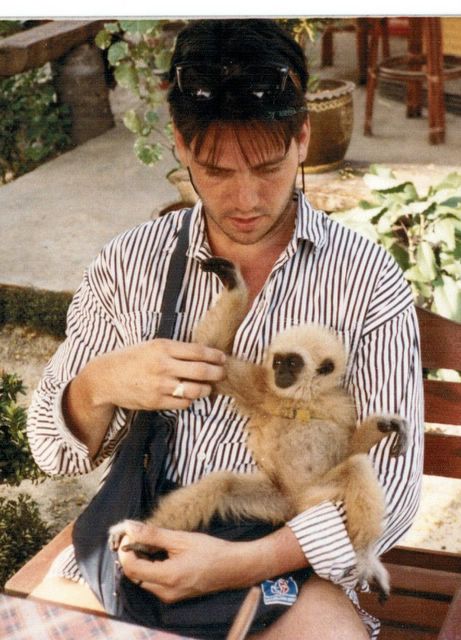Happy 4th of July and remember to answer the poll below...
The focus of this two (or 3) part post is the ethics of Euthinasia. A recent Princeton apointee, Peter Singer, a bioethics professor, has come under attack for his book "Practical Ethics". I will not restate all of the controversy of this book (or his previous books) as they are easily researchable. For this Post, I will tell you he advocates the "Mercy Killing" of newborns that are pre-disposed to a sub-standard life due to certain "Disabilities." He is the world's foremost proponent of utilitarianism, claiming that euthinasia of disabled infants is possible as..."Newborn human babies have no sense of their own existence over time". However in his 1985 book "Should the baby Live?", he claims it is not a "Utilitarian" philosphy , but the desire to save the child a lifetime of pain and suffering. Singer states that it is the parent that should make the decision to end the infant's suffering.
A recent study of Dutch practices shows an abnormally high rate of Doctors admitting to practicing infant euthanasia. The Associated Press also reported that a startling 73% doctors in one French study admitted to purposely euthanizing a baby by administering a drug cocktail at least once over the coarse of their practice. As much as 4% of U.S. doctors also will admit to it. Most of the studies are done to protect the annonimity of the physician to guarantee "honesty" in thier reply. But the issues of how and why they made the decision to end a baby's life is not stated. There was also no mention as to who made the decision to end the infant's life.
Fat Bastard's Position
Unless you live in a vacuum, most of you have thought about the ideas of mercy killing. We watch a war movie or a western where a badly wounded tough guy asks to be put out of his misery. Visions of pulling the plug on a loved one that is pleading for the pain to end and wondering if we could do it. The recent battles over Terri Schindler Schiavo by her husband and her parents has brought much attention back to this Philosophcal and Moral issue. There are pacts made by friends, where everyone promises to help each other if the quality life drops below a predetermined line. I have a friend that is in Iraq that is quite clear on the subject and what role he wants me to endure. There are a miriad of situations where I would consider ending my own life. The issue seems to come down to "Quality of Life vs. Quantity of Life" for most people.
But what about newborns? What line is to be drawn on their behalf? Should the government be allowed to make these decisions or draw the lines? There are groups out there to argue each and every aspect of this issue. From right-to-life all the way to right-to-death. Doctors and parents have been making the decision of euthinasia for newborns throughout history. It is a sad and horrible side of life that sparks emotions in all of us. When a baby is born in a condition of imminent death and is in pain, a Doctor may make a decision to save the baby from more pain and suffering and end its life pre-maturely. When the same doctor goes to the mother to discuss the issue, he may determine that the decision would cause her even more pain. I can not concieve that this is an easy decision for any medical professional to make.
For each of us the issue of euthinasia is influenced by our philosophical, moral and ethical beliefs. Each situation is unique to each person. The Teri Schiavo case is a perfect example. The parents view of Teri's situation was that of hope of some quality of life. The husband's view was that there was no quality to her life. Thousands of people took up positions and a very private situation became very public. In the same situation, I would have my wife or close friend make the decision to end or extend my "life", not my parents. My wife knows my every feeling and belief. She will make the decision based on my desires and our discussions, where as my parents may not have the same ability to determine my desires nor be able to let me go. There is a way to have your wishes known. A medical Durable Power of Attorney. Below is a couple of links to this form. Dont leave your future to chance or have your loved ones torn apart.
In closing, I'd like to state that separating philosophical views from moral views is next to impossible. Philosophy is just that. A philosophy, not a way of life. We need people like
Peter Singer to help stimulate critical thinking which allows us analyse the outcomes of our decisions. I do not believe that he is correct in his views nor do I believe in a "utilitarian" way of life. But I do see the logic of some of his arguements. Fortunately logic does not dictate our lives.








<< Home